Andrew Cort's Blog, page 28
February 6, 2012
IS THERE A WAR ON RELIGION?
Tweet
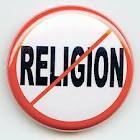 President Obama recently agreed to a Health and Human Services ruling which says that under the new Health Care Act, Catholic institutions—including charities, hospitals and schools—will be required by law to provide and pay for insurance coverage (for their employees) that includes contraceptives, abortion-inducing drugs and sterilization procedures. If they fail to do so, they will face heavy fines. Many Catholic Bishops and others are objecting to this law as an infringement of First Amendment, Freedom of Religion rights, and in certain quarters, as evidence of a "war on religion". Many liberals (not all) are saying that what this does is protect and promote women's health, and prevent the Catholic Church from imposing its will on non-Catholics.
President Obama recently agreed to a Health and Human Services ruling which says that under the new Health Care Act, Catholic institutions—including charities, hospitals and schools—will be required by law to provide and pay for insurance coverage (for their employees) that includes contraceptives, abortion-inducing drugs and sterilization procedures. If they fail to do so, they will face heavy fines. Many Catholic Bishops and others are objecting to this law as an infringement of First Amendment, Freedom of Religion rights, and in certain quarters, as evidence of a "war on religion". Many liberals (not all) are saying that what this does is protect and promote women's health, and prevent the Catholic Church from imposing its will on non-Catholics.
First, let's be clear about what the ruling does and doesn't say. It does not say that Catholic Hospitals will be required to perform abortions, or that a Catholic doctor will be required to prescribe contraceptives, or any similar impositions. What it does say is that institutions with ties to the Catholic Church (but not a Church itself) – such as hospitals, colleges, and charitable agencies – that employ non-Catholics as well as Catholics, and that accept federal or state funds, must follow the same rules as other organizations when it comes to providing health care benefits for their employees. In other words, if a non-Catholic person (or for that matter, a Catholic person who does not agree with the anti-contraceptive beliefs of the Catholic Church) were to get a job at a Catholic Hospital as a secretary, or an orderly, or a surgeon, or a ticket-taker in the garage, and that person wanted to go to their physician (not the Catholic hospital itself) and get a prescription for birth control pills, and then went to their local pharmacy to pick up the prescription, their insurance policy – like insurance policies everywhere else – would cover the cost.
Now there is an issue here, a legitimate issue, but let's look at it without raving about 'wars on religion', or 'wars on Catholics', or 'the end of religious freedom in America', or other sensationalism and negative rabble-rousing.
The issue is this: If we grant special privileges to Churches, Synagogues, Mosques, etc,(which I believe is perfectly Constitutional and perfectly fine), the question arises about whether other organizations or businesses that are somehow related to the religious institution are also entitled to these same special privileges (i.e., regarding taxes, complying with laws and regulations, etc.).
Now there are obvious answers here when the related-organization is very close to, or very far from, the institution itself. For instance, a Sunday School in the basement of a Church is not a 'Church', it's an educational activity – but clearly, this is a close enough association with the Church that I doubt anyone would seriously advocate for refusing it the same privileges as the Church itself. At the other extreme, there may be a drugstore in town which is often visited by Catholic members of the Church, but I doubt anyone would seriously advocate that the presence of Catholic customers means that the store should not be allowed to sell condoms. These are obvious and simple extremes: What about this situation which is somewhere in between?
The question here is whether the institutions covered by this regulation – Catholic Hospitals, Schools, Colleges, Charitable Agencies, etc. – are far enough removed from the Church itself as to be distinct, or so tightly connected as to be a virtual part of the Church. It has usually been assumed that such groups are entitled to the same privileges as a Church. But this historical precedent, while carrying weight, is not necessarily correct. There have always been arguments to the contrary. Laws and rules evolve, and must evolve as technology and society evolve, so this precedent should be considered but not deemed conclusive. There is also the issue of whether these organizations, by accepting government funds, are self-defining themselves as public, rather than religious, endeavors. So, in legal terms, the issue comes down to this: is the regulation, including its exemptions, crafted too narrowly?
I believe this is a fair question. People of good will are on both sides. I am sick to death of hearing all the name-calling and nasty personal accusations that are made when people disagree (whether on this issue or so many others). Frankly, I'm not yet sure where I stand on this, I'm very interested in hearing intelligent opposing arguments, and I'm looking forward to hearing a carefully considered and soundly reasoned opinion from the courts (I'm fairly sure this will get there). In the meantime, I find myself partly persuaded by sentiments of despair about government bureaucracy overly imposing itself, and many considerations of freedom of religion. But I'm also partly persuaded by arguments for fairness and equality in our treatment of employees, and by issues of women's rights and health.
And I do think it worth remembering, when politicians or others claim that this is a unique case in our history that proves the Administration is conducting a 'war on Catholics' or other such drivel, that despite their religious consciences Mormons are not allowed to engage in polygamy, Christian Scientists are not allowed to deny medical attention to their dying children, Quakers are not allowed to deduct taxes that might go toward warfare, Rastafarians are not allowed to use illegal drugs in their religious ceremonies, and Atheists are not allowed to deduct from their taxes monies that might be used to help fund a Catholic hospital. Freedom to hold one's own religious beliefs and convictions – which comes from the second clause of the First Amendment – has always been balanced by restrictions against imposing one's beliefs on others – which comes from the first clause of that same First Amendment. Achieving this balance is a difficult and fascinating proposition that must be pursued intelligently and certainly can be pursued civilly.
What are your views?
***YOUR COMMENTS ARE ALWAYS WELCOME!***
And Please Note: If you enjoy my Blog Posts, you will certainly enjoy my book.

 President Obama recently agreed to a Health and Human Services ruling which says that under the new Health Care Act, Catholic institutions—including charities, hospitals and schools—will be required by law to provide and pay for insurance coverage (for their employees) that includes contraceptives, abortion-inducing drugs and sterilization procedures. If they fail to do so, they will face heavy fines. Many Catholic Bishops and others are objecting to this law as an infringement of First Amendment, Freedom of Religion rights, and in certain quarters, as evidence of a "war on religion". Many liberals (not all) are saying that what this does is protect and promote women's health, and prevent the Catholic Church from imposing its will on non-Catholics.
President Obama recently agreed to a Health and Human Services ruling which says that under the new Health Care Act, Catholic institutions—including charities, hospitals and schools—will be required by law to provide and pay for insurance coverage (for their employees) that includes contraceptives, abortion-inducing drugs and sterilization procedures. If they fail to do so, they will face heavy fines. Many Catholic Bishops and others are objecting to this law as an infringement of First Amendment, Freedom of Religion rights, and in certain quarters, as evidence of a "war on religion". Many liberals (not all) are saying that what this does is protect and promote women's health, and prevent the Catholic Church from imposing its will on non-Catholics. First, let's be clear about what the ruling does and doesn't say. It does not say that Catholic Hospitals will be required to perform abortions, or that a Catholic doctor will be required to prescribe contraceptives, or any similar impositions. What it does say is that institutions with ties to the Catholic Church (but not a Church itself) – such as hospitals, colleges, and charitable agencies – that employ non-Catholics as well as Catholics, and that accept federal or state funds, must follow the same rules as other organizations when it comes to providing health care benefits for their employees. In other words, if a non-Catholic person (or for that matter, a Catholic person who does not agree with the anti-contraceptive beliefs of the Catholic Church) were to get a job at a Catholic Hospital as a secretary, or an orderly, or a surgeon, or a ticket-taker in the garage, and that person wanted to go to their physician (not the Catholic hospital itself) and get a prescription for birth control pills, and then went to their local pharmacy to pick up the prescription, their insurance policy – like insurance policies everywhere else – would cover the cost.
Now there is an issue here, a legitimate issue, but let's look at it without raving about 'wars on religion', or 'wars on Catholics', or 'the end of religious freedom in America', or other sensationalism and negative rabble-rousing.
The issue is this: If we grant special privileges to Churches, Synagogues, Mosques, etc,(which I believe is perfectly Constitutional and perfectly fine), the question arises about whether other organizations or businesses that are somehow related to the religious institution are also entitled to these same special privileges (i.e., regarding taxes, complying with laws and regulations, etc.).
Now there are obvious answers here when the related-organization is very close to, or very far from, the institution itself. For instance, a Sunday School in the basement of a Church is not a 'Church', it's an educational activity – but clearly, this is a close enough association with the Church that I doubt anyone would seriously advocate for refusing it the same privileges as the Church itself. At the other extreme, there may be a drugstore in town which is often visited by Catholic members of the Church, but I doubt anyone would seriously advocate that the presence of Catholic customers means that the store should not be allowed to sell condoms. These are obvious and simple extremes: What about this situation which is somewhere in between?
The question here is whether the institutions covered by this regulation – Catholic Hospitals, Schools, Colleges, Charitable Agencies, etc. – are far enough removed from the Church itself as to be distinct, or so tightly connected as to be a virtual part of the Church. It has usually been assumed that such groups are entitled to the same privileges as a Church. But this historical precedent, while carrying weight, is not necessarily correct. There have always been arguments to the contrary. Laws and rules evolve, and must evolve as technology and society evolve, so this precedent should be considered but not deemed conclusive. There is also the issue of whether these organizations, by accepting government funds, are self-defining themselves as public, rather than religious, endeavors. So, in legal terms, the issue comes down to this: is the regulation, including its exemptions, crafted too narrowly?
I believe this is a fair question. People of good will are on both sides. I am sick to death of hearing all the name-calling and nasty personal accusations that are made when people disagree (whether on this issue or so many others). Frankly, I'm not yet sure where I stand on this, I'm very interested in hearing intelligent opposing arguments, and I'm looking forward to hearing a carefully considered and soundly reasoned opinion from the courts (I'm fairly sure this will get there). In the meantime, I find myself partly persuaded by sentiments of despair about government bureaucracy overly imposing itself, and many considerations of freedom of religion. But I'm also partly persuaded by arguments for fairness and equality in our treatment of employees, and by issues of women's rights and health.
And I do think it worth remembering, when politicians or others claim that this is a unique case in our history that proves the Administration is conducting a 'war on Catholics' or other such drivel, that despite their religious consciences Mormons are not allowed to engage in polygamy, Christian Scientists are not allowed to deny medical attention to their dying children, Quakers are not allowed to deduct taxes that might go toward warfare, Rastafarians are not allowed to use illegal drugs in their religious ceremonies, and Atheists are not allowed to deduct from their taxes monies that might be used to help fund a Catholic hospital. Freedom to hold one's own religious beliefs and convictions – which comes from the second clause of the First Amendment – has always been balanced by restrictions against imposing one's beliefs on others – which comes from the first clause of that same First Amendment. Achieving this balance is a difficult and fascinating proposition that must be pursued intelligently and certainly can be pursued civilly.
What are your views?
***YOUR COMMENTS ARE ALWAYS WELCOME!***
And Please Note: If you enjoy my Blog Posts, you will certainly enjoy my book.
Published on February 06, 2012 21:02
February 5, 2012
A MEDITATIVE BEGINNING
Tweet
(Today's Post is a Guest Post from blisslotus.com)****
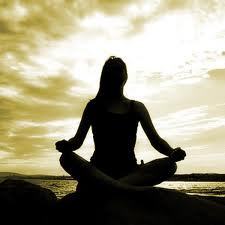 I often share with others the beauty, inner peace and opportunity for growth that daily Meditation has opened up in my life. Both medical and holistic professionals agree that taking on a life of focus, clarity and calm has health benefits and personal introspective opportunities that few other daily activities can create for you. Newbies to Meditation may not yet understand how to reap the rewards and begin to realize a Meditative state. Here are some valuable starter tools one could use to learn how to Meditate and nurture the development in concentration and clarity.
I often share with others the beauty, inner peace and opportunity for growth that daily Meditation has opened up in my life. Both medical and holistic professionals agree that taking on a life of focus, clarity and calm has health benefits and personal introspective opportunities that few other daily activities can create for you. Newbies to Meditation may not yet understand how to reap the rewards and begin to realize a Meditative state. Here are some valuable starter tools one could use to learn how to Meditate and nurture the development in concentration and clarity.
The Quiet Room
Nothing is more important to your Meditation than the ambience of the room. Finding a distraction free area, one that is clutter free and peaceful can be the key to setting the tone to your mental and physical relaxation. For some this is their personal bedroom, for others it could be the basement. As long as there is no cell phone, no television and certainly no computer or work then you can pretty much meditate anywhere in your home.
Lighting is important to set the mood as well. Soft light, candles or even a completely darkened room all bring about the body's natural tranquil setting readying it for the meditation about to begin. Often music, ambient noise or nature sounds are used to enhance the meditative experience. There are plenty of options available online or in stores for meditation audio. Music has been proven to calm the brainwaves and mute the thought process that brings about disruption in the mind.
Body Posture
Most meditation takes place in the seated position. With legs under you or sitting cross-legged, imagine your back is a straight tree stump coming out of the ground. You may place a pillow under your hips if this helps to maintain that upright posture. Position is important as it helps you focus, breathe and reach the body's fullest potential. Some meditators find that laying on a mat, back straight and legs straight is a more comfortable position to begin. Either way is acceptable as this is your experience and there is no exact, 'right' way. Hands can lay comfortably at your sides or resting on your knees. Focus is usually best achieved with eyes closed gently. Now you are ready to initiate the process of meditation.
Breathing
Traditionally we breathe completely through our noses when we are in a relaxed state. During meditation we inhale through our nose, but then exhale through our mouths. This deeper type of breathing calms the body quicker and allows us the ability to focus on our breathing instead of our thoughts.
Begin by taking in one deep nasal breath. Think a positive thought on your inhalation – about your family, your friends, a favorite vacation spot, anything that makes you happy. Then, on the exhalation through your mouth, blow out a negative thought – anger towards someone, feelings of being judged, etc. Continue this breathing process for one to two minutes or until you feel you have a good flow. Then you may begin resuming normal breaths.
Focal Points and Mantras
Both experienced and new Meditators can benefit from a focal point. A focal point can be something as simple as a candle's flicker or something in your mind that you visualize. Picturing a star twinkling in a sky of darkness, a wave on the ocean over and over – anything that busies your thoughts and keeps you motivated in your meditation. Some add a mantra to their focal point, repeating a phrase or sound over and over again. There is no exact phrase to repeat, but some suggestions are "I am worth it" or "I am one with my universe" or the simple, "Om". The point of both focal points and mantras are to maintain that effort and concentration to allow your body the natural process of complete and utter relaxation. Your thoughts do not have hold of you during a meditation, you become one with mind, body and soul.
Accepting Thoughts and Completing the Meditation
During your meditation you may start to wander. Shopping lists, work matters or stress may try to enter and take hold. Just observe your thoughts, let them pass on by and don't give them a moment to bother you. Refocus on your breathing and your focal point or mantra so you can regain your meditative composure.
Once you have completed your meditation and feel that you are ready to accept and give back what it has given to you, take in your final whole breath. Slowly open your eyes and readjust yourself to your surroundings. Rise from your position, welcome in the unity and pay it forward.
Peace and Blessings. ***
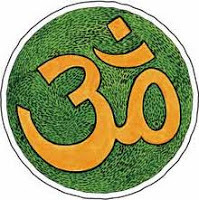 For more information and other guides on how to meditate or grow in your meditative experiences, you can visit www.blisslotus.com. Content on this site was provided by Sara Kutliroff, a motivational and holistic writer who can be reached via her blog at
For more information and other guides on how to meditate or grow in your meditative experiences, you can visit www.blisslotus.com. Content on this site was provided by Sara Kutliroff, a motivational and holistic writer who can be reached via her blog at 
(Today's Post is a Guest Post from blisslotus.com)****
 I often share with others the beauty, inner peace and opportunity for growth that daily Meditation has opened up in my life. Both medical and holistic professionals agree that taking on a life of focus, clarity and calm has health benefits and personal introspective opportunities that few other daily activities can create for you. Newbies to Meditation may not yet understand how to reap the rewards and begin to realize a Meditative state. Here are some valuable starter tools one could use to learn how to Meditate and nurture the development in concentration and clarity.
I often share with others the beauty, inner peace and opportunity for growth that daily Meditation has opened up in my life. Both medical and holistic professionals agree that taking on a life of focus, clarity and calm has health benefits and personal introspective opportunities that few other daily activities can create for you. Newbies to Meditation may not yet understand how to reap the rewards and begin to realize a Meditative state. Here are some valuable starter tools one could use to learn how to Meditate and nurture the development in concentration and clarity.The Quiet Room
Nothing is more important to your Meditation than the ambience of the room. Finding a distraction free area, one that is clutter free and peaceful can be the key to setting the tone to your mental and physical relaxation. For some this is their personal bedroom, for others it could be the basement. As long as there is no cell phone, no television and certainly no computer or work then you can pretty much meditate anywhere in your home.
Lighting is important to set the mood as well. Soft light, candles or even a completely darkened room all bring about the body's natural tranquil setting readying it for the meditation about to begin. Often music, ambient noise or nature sounds are used to enhance the meditative experience. There are plenty of options available online or in stores for meditation audio. Music has been proven to calm the brainwaves and mute the thought process that brings about disruption in the mind.
Body Posture
Most meditation takes place in the seated position. With legs under you or sitting cross-legged, imagine your back is a straight tree stump coming out of the ground. You may place a pillow under your hips if this helps to maintain that upright posture. Position is important as it helps you focus, breathe and reach the body's fullest potential. Some meditators find that laying on a mat, back straight and legs straight is a more comfortable position to begin. Either way is acceptable as this is your experience and there is no exact, 'right' way. Hands can lay comfortably at your sides or resting on your knees. Focus is usually best achieved with eyes closed gently. Now you are ready to initiate the process of meditation.
Breathing
Traditionally we breathe completely through our noses when we are in a relaxed state. During meditation we inhale through our nose, but then exhale through our mouths. This deeper type of breathing calms the body quicker and allows us the ability to focus on our breathing instead of our thoughts.
Begin by taking in one deep nasal breath. Think a positive thought on your inhalation – about your family, your friends, a favorite vacation spot, anything that makes you happy. Then, on the exhalation through your mouth, blow out a negative thought – anger towards someone, feelings of being judged, etc. Continue this breathing process for one to two minutes or until you feel you have a good flow. Then you may begin resuming normal breaths.
Focal Points and Mantras
Both experienced and new Meditators can benefit from a focal point. A focal point can be something as simple as a candle's flicker or something in your mind that you visualize. Picturing a star twinkling in a sky of darkness, a wave on the ocean over and over – anything that busies your thoughts and keeps you motivated in your meditation. Some add a mantra to their focal point, repeating a phrase or sound over and over again. There is no exact phrase to repeat, but some suggestions are "I am worth it" or "I am one with my universe" or the simple, "Om". The point of both focal points and mantras are to maintain that effort and concentration to allow your body the natural process of complete and utter relaxation. Your thoughts do not have hold of you during a meditation, you become one with mind, body and soul.
Accepting Thoughts and Completing the Meditation
During your meditation you may start to wander. Shopping lists, work matters or stress may try to enter and take hold. Just observe your thoughts, let them pass on by and don't give them a moment to bother you. Refocus on your breathing and your focal point or mantra so you can regain your meditative composure.
Once you have completed your meditation and feel that you are ready to accept and give back what it has given to you, take in your final whole breath. Slowly open your eyes and readjust yourself to your surroundings. Rise from your position, welcome in the unity and pay it forward.
Peace and Blessings. ***
 For more information and other guides on how to meditate or grow in your meditative experiences, you can visit www.blisslotus.com. Content on this site was provided by Sara Kutliroff, a motivational and holistic writer who can be reached via her blog at
For more information and other guides on how to meditate or grow in your meditative experiences, you can visit www.blisslotus.com. Content on this site was provided by Sara Kutliroff, a motivational and holistic writer who can be reached via her blog at
Published on February 05, 2012 21:20
February 4, 2012
THE WISDOM OF SOCRATES
Tweet
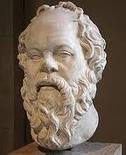 Socrates was born in 469 B.C., in the early years of Pericles' rule. Socrates, like all Athenian children, studied music, Homer's poetry, and gymnastics. He also acquired some knowledge of geometry and astronomy, and became fascinated with the theories of Thales and others on the nature of matter. So with his friend Chaerephon, he began studying the natural science of his day.
Socrates was born in 469 B.C., in the early years of Pericles' rule. Socrates, like all Athenian children, studied music, Homer's poetry, and gymnastics. He also acquired some knowledge of geometry and astronomy, and became fascinated with the theories of Thales and others on the nature of matter. So with his friend Chaerephon, he began studying the natural science of his day.
But this interest in science did not last very long for two reasons:
* First, it all just seemed like a lot of idle speculation, full of disagreements and contradictions, and incapable of proof. * Second, it was useless -- useless, that is, for what seemed to Socrates to be the chief and proper concerns of a human being: knowledge of oneself and the right way to live. Socrates only wanted to discuss human concerns -- what makes people good as individuals and citizens.
Chaerephon was so impressed with his friend's intelligence that he went to the Oracle at Delphi and asked if there was anyone as wise as Socrates. The prophetess, whose words were supposed to be those of Apollo himself, replied that no one was wiser than he. When Chaerephon reported this to Socrates, Socrates was troubled. "What can the god mean? What is the interpretation of this riddle? For I know that I have no wisdom, small or great. What can he mean when he says that I am the wisest of men? And yet he is a god and cannot lie."
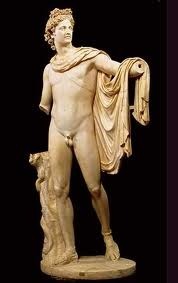 So Socrates decided to search for someone who really did have some wisdom, and then to go back to the Oracle at Delphi and confront Apollo, hoping to learn the answer to this riddle. "Accordingly", he later reported with priceless irony, humor, and much contemporary relevance, "I went to one who had the reputation of wisdom -- his name I need not mention; he was a politician whom I selected for examination -- and the result was as follows: When I began to talk with him, I could not help thinking that he was not really wise, although he was thought wise by many, and wiser still by himself; and I went and tried to explain to him that he thought himself wise, but was not really wise; and the consequence was that he hated me, and his enmity was shared by several who were present and heard me." So Socrates left, thinking to himself that "although I do not suppose that either of us knows anything really beautiful and good, I am better off than he is -- for he knows nothing, and thinks that he knows. I neither know nor think that I know. In this latter particular, then, I seem to have slightly the advantage of him."
So Socrates decided to search for someone who really did have some wisdom, and then to go back to the Oracle at Delphi and confront Apollo, hoping to learn the answer to this riddle. "Accordingly", he later reported with priceless irony, humor, and much contemporary relevance, "I went to one who had the reputation of wisdom -- his name I need not mention; he was a politician whom I selected for examination -- and the result was as follows: When I began to talk with him, I could not help thinking that he was not really wise, although he was thought wise by many, and wiser still by himself; and I went and tried to explain to him that he thought himself wise, but was not really wise; and the consequence was that he hated me, and his enmity was shared by several who were present and heard me." So Socrates left, thinking to himself that "although I do not suppose that either of us knows anything really beautiful and good, I am better off than he is -- for he knows nothing, and thinks that he knows. I neither know nor think that I know. In this latter particular, then, I seem to have slightly the advantage of him."
After this, Socrates went on questioning others who had pretensions to wisdom. He spoke with politicians, he spoke with poets, he spoke with merchants, but always with the same results. He was aware of the enmity he was continually provoking, but he felt that this was a necessary task which had been set for him by the divine Apollo himself. At last, he concluded that the riddle which the oracle had given to Chaerephon really meant that he, Socrates, who had no wisdom at all, was nonetheless as wise as anyone else on earth -- since only God is wise, and what people think of as wisdom means nothing.
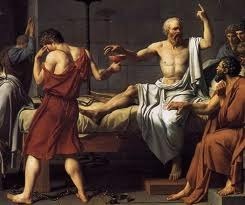 Thus began Socrates' mission of relentlessly asking people questions, listening to their answers, and accepting no ideas or opinions without examining them fully, as a means of eliciting self-knowledge and a deeper understanding of truth and virtue. Eventually, he so annoyed the complacent authorities of Athens, that at the age of seventy they condemned him to death on trumped up charges of impiety and corrupting the youth of the city. His allegedly 'corrupting activities', as demonstrated in Plato's Dialogues, consisted of a method of self-inquiry, a path toward ever increasing self-awareness, because he knew that self-knowledge is the necessary first step in the perfection of the soul. Socrates, as a teacher, guided his pupils through their self-examination by asking them pointed questions and probing their answers with them, leaving no stone unturned or unquestioned.
Thus began Socrates' mission of relentlessly asking people questions, listening to their answers, and accepting no ideas or opinions without examining them fully, as a means of eliciting self-knowledge and a deeper understanding of truth and virtue. Eventually, he so annoyed the complacent authorities of Athens, that at the age of seventy they condemned him to death on trumped up charges of impiety and corrupting the youth of the city. His allegedly 'corrupting activities', as demonstrated in Plato's Dialogues, consisted of a method of self-inquiry, a path toward ever increasing self-awareness, because he knew that self-knowledge is the necessary first step in the perfection of the soul. Socrates, as a teacher, guided his pupils through their self-examination by asking them pointed questions and probing their answers with them, leaving no stone unturned or unquestioned.
He did not teach a 'belief system'. Rather, he taught them a method of psychological self-discovery, a method for asking questions and verifying truth for themselves.
***YOUR COMMENTS ARE ALWAYS WELCOME!***
And Please Note: If you enjoy my Blog Posts, you will certainly enjoy my book.

 Socrates was born in 469 B.C., in the early years of Pericles' rule. Socrates, like all Athenian children, studied music, Homer's poetry, and gymnastics. He also acquired some knowledge of geometry and astronomy, and became fascinated with the theories of Thales and others on the nature of matter. So with his friend Chaerephon, he began studying the natural science of his day.
Socrates was born in 469 B.C., in the early years of Pericles' rule. Socrates, like all Athenian children, studied music, Homer's poetry, and gymnastics. He also acquired some knowledge of geometry and astronomy, and became fascinated with the theories of Thales and others on the nature of matter. So with his friend Chaerephon, he began studying the natural science of his day.But this interest in science did not last very long for two reasons:
* First, it all just seemed like a lot of idle speculation, full of disagreements and contradictions, and incapable of proof. * Second, it was useless -- useless, that is, for what seemed to Socrates to be the chief and proper concerns of a human being: knowledge of oneself and the right way to live. Socrates only wanted to discuss human concerns -- what makes people good as individuals and citizens.
Chaerephon was so impressed with his friend's intelligence that he went to the Oracle at Delphi and asked if there was anyone as wise as Socrates. The prophetess, whose words were supposed to be those of Apollo himself, replied that no one was wiser than he. When Chaerephon reported this to Socrates, Socrates was troubled. "What can the god mean? What is the interpretation of this riddle? For I know that I have no wisdom, small or great. What can he mean when he says that I am the wisest of men? And yet he is a god and cannot lie."
 So Socrates decided to search for someone who really did have some wisdom, and then to go back to the Oracle at Delphi and confront Apollo, hoping to learn the answer to this riddle. "Accordingly", he later reported with priceless irony, humor, and much contemporary relevance, "I went to one who had the reputation of wisdom -- his name I need not mention; he was a politician whom I selected for examination -- and the result was as follows: When I began to talk with him, I could not help thinking that he was not really wise, although he was thought wise by many, and wiser still by himself; and I went and tried to explain to him that he thought himself wise, but was not really wise; and the consequence was that he hated me, and his enmity was shared by several who were present and heard me." So Socrates left, thinking to himself that "although I do not suppose that either of us knows anything really beautiful and good, I am better off than he is -- for he knows nothing, and thinks that he knows. I neither know nor think that I know. In this latter particular, then, I seem to have slightly the advantage of him."
So Socrates decided to search for someone who really did have some wisdom, and then to go back to the Oracle at Delphi and confront Apollo, hoping to learn the answer to this riddle. "Accordingly", he later reported with priceless irony, humor, and much contemporary relevance, "I went to one who had the reputation of wisdom -- his name I need not mention; he was a politician whom I selected for examination -- and the result was as follows: When I began to talk with him, I could not help thinking that he was not really wise, although he was thought wise by many, and wiser still by himself; and I went and tried to explain to him that he thought himself wise, but was not really wise; and the consequence was that he hated me, and his enmity was shared by several who were present and heard me." So Socrates left, thinking to himself that "although I do not suppose that either of us knows anything really beautiful and good, I am better off than he is -- for he knows nothing, and thinks that he knows. I neither know nor think that I know. In this latter particular, then, I seem to have slightly the advantage of him."After this, Socrates went on questioning others who had pretensions to wisdom. He spoke with politicians, he spoke with poets, he spoke with merchants, but always with the same results. He was aware of the enmity he was continually provoking, but he felt that this was a necessary task which had been set for him by the divine Apollo himself. At last, he concluded that the riddle which the oracle had given to Chaerephon really meant that he, Socrates, who had no wisdom at all, was nonetheless as wise as anyone else on earth -- since only God is wise, and what people think of as wisdom means nothing.
 Thus began Socrates' mission of relentlessly asking people questions, listening to their answers, and accepting no ideas or opinions without examining them fully, as a means of eliciting self-knowledge and a deeper understanding of truth and virtue. Eventually, he so annoyed the complacent authorities of Athens, that at the age of seventy they condemned him to death on trumped up charges of impiety and corrupting the youth of the city. His allegedly 'corrupting activities', as demonstrated in Plato's Dialogues, consisted of a method of self-inquiry, a path toward ever increasing self-awareness, because he knew that self-knowledge is the necessary first step in the perfection of the soul. Socrates, as a teacher, guided his pupils through their self-examination by asking them pointed questions and probing their answers with them, leaving no stone unturned or unquestioned.
Thus began Socrates' mission of relentlessly asking people questions, listening to their answers, and accepting no ideas or opinions without examining them fully, as a means of eliciting self-knowledge and a deeper understanding of truth and virtue. Eventually, he so annoyed the complacent authorities of Athens, that at the age of seventy they condemned him to death on trumped up charges of impiety and corrupting the youth of the city. His allegedly 'corrupting activities', as demonstrated in Plato's Dialogues, consisted of a method of self-inquiry, a path toward ever increasing self-awareness, because he knew that self-knowledge is the necessary first step in the perfection of the soul. Socrates, as a teacher, guided his pupils through their self-examination by asking them pointed questions and probing their answers with them, leaving no stone unturned or unquestioned. He did not teach a 'belief system'. Rather, he taught them a method of psychological self-discovery, a method for asking questions and verifying truth for themselves.
***YOUR COMMENTS ARE ALWAYS WELCOME!***
And Please Note: If you enjoy my Blog Posts, you will certainly enjoy my book.
Published on February 04, 2012 13:38
February 1, 2012
JUDAH AND TAMAR
Tweet
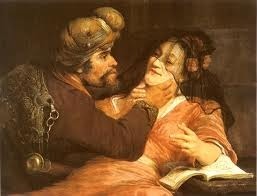 After Joseph was sold into slavery, and prior to his being sold to Potiphar, Genesis interrupts the story of Joseph and inserts this interesting, and seemingly-out-of-place, interlude about Judah.
After Joseph was sold into slavery, and prior to his being sold to Potiphar, Genesis interrupts the story of Joseph and inserts this interesting, and seemingly-out-of-place, interlude about Judah.
Judah had gotten married and had three sons: Er, Onan, and Shelah. When Er came of age, Judah found him a wife, a woman named Tamar. But Er was evil (we are not told why), and God took him. After Er died, the tradition of the times was that his brother must marry the widow, and the children of this marriage would be considered the children of the dead elder brother and would continue his line. So Judah had Onan marry Tamar. But Onan was not interested in supporting a family that was not considered his own, so when he slept with Tamar he would not ejaculate inside her. This greatly displeased the Lord who had commanded his people to 'be fruitful and multiply', and Onan, too, was taken. Next, Shelah was supposed to marry Tamar, but Shelah was still a boy. So Judah told Tamar to return temporarily to her own father as a widow, and when Shelah was grown up they would be married.
Shelah grew to manhood, but Judah did not contact Tamar. She seemed a bit of a jinx, and he did not wish to lose his only remaining son.
A long time afterward, Judah's wife passed away. After the period of mourning, he took a trip to the city of Timnah, and Tamar heard that he was going there. She also knew that Judah had not done as he should have, and as he had promised, for Shelah was by now a fully grown man. Since it was her divine duty to bear children, and she was considered to be betrothed to the family of Judah and could not marry anyone else, she devised a shrewd plan:
She took off her widow's garb, covered her face, and sat beside the road that led to Timnah. When Judah saw her, he did not recognize her and thought that she was a harlot, and he asked to sleep with her. She asked what he would pay. He offered a young sheep from his flock. She agreed, but since he did not have the sheep with him, and was only promising to send it later, she asked for some collateral. Judah gave her his seal, cord and staff. They then slept together and she conceived. He later sent a friend to give her the sheep and retrieve his belongings, but she was nowhere to be found and no one in the region had seen any harlots.
Some months later, Judah received word that Tamar was pregnant. Since she was betrothed to his family, and Shelah had not married her, Tamar was evidently guilty of adultery, a capital offense. Judah therefore ordered that she be brought out and burned. As she was being brought out, she sent a package and a message to her father-in-law: "I am with child by the man to whom these belong. Examine these: whose seal and cord and staff are these?" Judah recognized them, and he said "She is more righteous than I, inasmuch as I did not give her to my son Shelah."
Tamar was spared and gave birth to twins, Perez and Zerah. King David was a descendant of Perez, and so would be the Messiah .
When the brothers threw Joseph in the pit, they had no Mercy. When they returned to Jacob and deceived him with Joseph's blood-splattered coat, they took no responsibility. But here, Judah admits "She is more righteous than I." This public confession of wrongdoing is the first such confession in the Bible (long overdue since Adam first blamed Eve and Eve blamed the Serpent), and it is a symbol of profound repentance. Judah has learned to be honest, to bear responsibility, and to be merciful. Judah has become a Tzaddik, a genuine, righteous Man.
This is why, years later, in Joseph's presence, in Egypt, Judah (unlike Reuben who was always weak and ineffectual) was able to take full responsibility. He shows his love for his father and his young brother Benjamin. He knows what it feels like to lose two sons, and he demonstrates compassion and empathy. He recognizes that he is, indeed, his brother's keeper.
Judah, the righteous man, exemplifies the highest form of human love, without which life on earth can never succeed – the willingness to sacrifice one's life for another.***YOUR COMMENTS ARE ALWAYS WELCOME!***
And Please Note: If you enjoy my Blog Posts, you will certainly enjoy my book.

 After Joseph was sold into slavery, and prior to his being sold to Potiphar, Genesis interrupts the story of Joseph and inserts this interesting, and seemingly-out-of-place, interlude about Judah.
After Joseph was sold into slavery, and prior to his being sold to Potiphar, Genesis interrupts the story of Joseph and inserts this interesting, and seemingly-out-of-place, interlude about Judah. Judah had gotten married and had three sons: Er, Onan, and Shelah. When Er came of age, Judah found him a wife, a woman named Tamar. But Er was evil (we are not told why), and God took him. After Er died, the tradition of the times was that his brother must marry the widow, and the children of this marriage would be considered the children of the dead elder brother and would continue his line. So Judah had Onan marry Tamar. But Onan was not interested in supporting a family that was not considered his own, so when he slept with Tamar he would not ejaculate inside her. This greatly displeased the Lord who had commanded his people to 'be fruitful and multiply', and Onan, too, was taken. Next, Shelah was supposed to marry Tamar, but Shelah was still a boy. So Judah told Tamar to return temporarily to her own father as a widow, and when Shelah was grown up they would be married.
Shelah grew to manhood, but Judah did not contact Tamar. She seemed a bit of a jinx, and he did not wish to lose his only remaining son.
A long time afterward, Judah's wife passed away. After the period of mourning, he took a trip to the city of Timnah, and Tamar heard that he was going there. She also knew that Judah had not done as he should have, and as he had promised, for Shelah was by now a fully grown man. Since it was her divine duty to bear children, and she was considered to be betrothed to the family of Judah and could not marry anyone else, she devised a shrewd plan:
She took off her widow's garb, covered her face, and sat beside the road that led to Timnah. When Judah saw her, he did not recognize her and thought that she was a harlot, and he asked to sleep with her. She asked what he would pay. He offered a young sheep from his flock. She agreed, but since he did not have the sheep with him, and was only promising to send it later, she asked for some collateral. Judah gave her his seal, cord and staff. They then slept together and she conceived. He later sent a friend to give her the sheep and retrieve his belongings, but she was nowhere to be found and no one in the region had seen any harlots.
Some months later, Judah received word that Tamar was pregnant. Since she was betrothed to his family, and Shelah had not married her, Tamar was evidently guilty of adultery, a capital offense. Judah therefore ordered that she be brought out and burned. As she was being brought out, she sent a package and a message to her father-in-law: "I am with child by the man to whom these belong. Examine these: whose seal and cord and staff are these?" Judah recognized them, and he said "She is more righteous than I, inasmuch as I did not give her to my son Shelah."
Tamar was spared and gave birth to twins, Perez and Zerah. King David was a descendant of Perez, and so would be the Messiah .
When the brothers threw Joseph in the pit, they had no Mercy. When they returned to Jacob and deceived him with Joseph's blood-splattered coat, they took no responsibility. But here, Judah admits "She is more righteous than I." This public confession of wrongdoing is the first such confession in the Bible (long overdue since Adam first blamed Eve and Eve blamed the Serpent), and it is a symbol of profound repentance. Judah has learned to be honest, to bear responsibility, and to be merciful. Judah has become a Tzaddik, a genuine, righteous Man.
This is why, years later, in Joseph's presence, in Egypt, Judah (unlike Reuben who was always weak and ineffectual) was able to take full responsibility. He shows his love for his father and his young brother Benjamin. He knows what it feels like to lose two sons, and he demonstrates compassion and empathy. He recognizes that he is, indeed, his brother's keeper.
Judah, the righteous man, exemplifies the highest form of human love, without which life on earth can never succeed – the willingness to sacrifice one's life for another.***YOUR COMMENTS ARE ALWAYS WELCOME!***
And Please Note: If you enjoy my Blog Posts, you will certainly enjoy my book.
Published on February 01, 2012 21:02
January 31, 2012
BLESSED ARE THE POOR IN SPIRIT, FOR THEIRS IS THE KINGDOM OF HEAVEN
Tweet
 To be 'poor in spirit' means to be finally 'empty' of absurd illusions, to have achieved a Socrates-like humility and to recognize that we know nothing – for only God is wise. The 'poor in spirit' acknowledge their spiritual neediness.
To be 'poor in spirit' means to be finally 'empty' of absurd illusions, to have achieved a Socrates-like humility and to recognize that we know nothing – for only God is wise. The 'poor in spirit' acknowledge their spiritual neediness.
Such people are 'blessed' because there is room now for Christ to enter their souls, there is room for the passionate longing of Eros to return -- the longing for union with God. The door to the Threshold, the inner door that leads to the Kingdom of Heaven, can only open for those who have this longing.
"But woe to you who are rich", Christ adds in Luke, for those who are 'rich' in spirit, who are filled with vanity and are content with the world of the ego, shadows, and illusions of self-importance, have already received their consolation.
***YOUR COMMENTS ARE ALWAYS WELCOME!***
And Please Note: If you enjoy my Blog Posts, you will certainly enjoy my book.

 To be 'poor in spirit' means to be finally 'empty' of absurd illusions, to have achieved a Socrates-like humility and to recognize that we know nothing – for only God is wise. The 'poor in spirit' acknowledge their spiritual neediness.
To be 'poor in spirit' means to be finally 'empty' of absurd illusions, to have achieved a Socrates-like humility and to recognize that we know nothing – for only God is wise. The 'poor in spirit' acknowledge their spiritual neediness. Such people are 'blessed' because there is room now for Christ to enter their souls, there is room for the passionate longing of Eros to return -- the longing for union with God. The door to the Threshold, the inner door that leads to the Kingdom of Heaven, can only open for those who have this longing.
"But woe to you who are rich", Christ adds in Luke, for those who are 'rich' in spirit, who are filled with vanity and are content with the world of the ego, shadows, and illusions of self-importance, have already received their consolation.
***YOUR COMMENTS ARE ALWAYS WELCOME!***
And Please Note: If you enjoy my Blog Posts, you will certainly enjoy my book.
Published on January 31, 2012 21:02
IT'S ONE THING TO HATE, ANOTHER TO DO SO IN CLOSE PROXIMITY TO THE HATED
Tweet
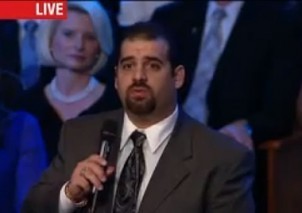 A Palestinian American, Abraham Hassan, got to ask a question in the debate the other night. He wanted to know what the candidates would do to help bring peace to the Middle East. It created an awkward moment. "It's one thing to hate", notes Haroon Moghul in an article in yesterday's Religion Dispatches, "and another thing to do so in such close proximity to the hated." The awkwardness was compounded because the man identified himself as a Republican. Hassan asked:
A Palestinian American, Abraham Hassan, got to ask a question in the debate the other night. He wanted to know what the candidates would do to help bring peace to the Middle East. It created an awkward moment. "It's one thing to hate", notes Haroon Moghul in an article in yesterday's Religion Dispatches, "and another thing to do so in such close proximity to the hated." The awkwardness was compounded because the man identified himself as a Republican. Hassan asked:
"How would a Republican administration help bring peace to Palestine and Israel when most candidates barely recognize the existence of Palestine or its people? As a Palestinian-American Republican, I'm here to tell you we do exist."
Both Mitt Romney and Newt Gingrich got a chance to answer. But as Hassan put it, "neither candidate sufficiently answered my question." Both shifted the question to their usual rhetoric. This is why the reporter, Moghul, sought out Hassan later for an interview.
You can read the entire article here.
As a Jewish American, a friend of Israel, and a supporter of a peace that includes security and opportunity for all parties, I can't help but have some sympathy for the responses of the two candidates. But generalizations, pandering to the audience, oversimplifications and exaggerations, will not accomplish anything. Neither will a lack of respect or a host of false assumptions. (Moghul's article clears up several. For example, "Most Muslims aren't Arabs," and "The percentage of Christians among the Palestinian population is about the same as the percentage of African Americans in the U.S.A.")
***YOUR COMMENTS ARE ALWAYS WELCOME!***
And Please Note: If you enjoy my Blog Posts, you will certainly enjoy my book.

 A Palestinian American, Abraham Hassan, got to ask a question in the debate the other night. He wanted to know what the candidates would do to help bring peace to the Middle East. It created an awkward moment. "It's one thing to hate", notes Haroon Moghul in an article in yesterday's Religion Dispatches, "and another thing to do so in such close proximity to the hated." The awkwardness was compounded because the man identified himself as a Republican. Hassan asked:
A Palestinian American, Abraham Hassan, got to ask a question in the debate the other night. He wanted to know what the candidates would do to help bring peace to the Middle East. It created an awkward moment. "It's one thing to hate", notes Haroon Moghul in an article in yesterday's Religion Dispatches, "and another thing to do so in such close proximity to the hated." The awkwardness was compounded because the man identified himself as a Republican. Hassan asked:"How would a Republican administration help bring peace to Palestine and Israel when most candidates barely recognize the existence of Palestine or its people? As a Palestinian-American Republican, I'm here to tell you we do exist."
Both Mitt Romney and Newt Gingrich got a chance to answer. But as Hassan put it, "neither candidate sufficiently answered my question." Both shifted the question to their usual rhetoric. This is why the reporter, Moghul, sought out Hassan later for an interview.
You can read the entire article here.
As a Jewish American, a friend of Israel, and a supporter of a peace that includes security and opportunity for all parties, I can't help but have some sympathy for the responses of the two candidates. But generalizations, pandering to the audience, oversimplifications and exaggerations, will not accomplish anything. Neither will a lack of respect or a host of false assumptions. (Moghul's article clears up several. For example, "Most Muslims aren't Arabs," and "The percentage of Christians among the Palestinian population is about the same as the percentage of African Americans in the U.S.A.")
***YOUR COMMENTS ARE ALWAYS WELCOME!***
And Please Note: If you enjoy my Blog Posts, you will certainly enjoy my book.
Published on January 31, 2012 10:11
January 26, 2012
SRI CHINMOY: "TRUE RELIGION DOES NOT FIND FAULT WITH OTHER RELIGIONS"
Tweet
 Born in East Bengal (now Bangladesh) in 1931, Sri Chinmoy was the youngest of seven children. In 1944, after both his parents had passed away, 12 year-old Chinmoy entered the Sri Aurobindo Ashram, a spiritual community near Pondicherry in South India. Here he spent the next 20 years in spiritual practice. In 1964, he moved to New York City to share his inner wealth with sincere seekers in the West. Sri Chinmoy saw the heart's ceaseless yearning for ever higher and deeper realities as the spiritual force behind all great advances in religion, culture and science. He departed this life in October, 2007.
Born in East Bengal (now Bangladesh) in 1931, Sri Chinmoy was the youngest of seven children. In 1944, after both his parents had passed away, 12 year-old Chinmoy entered the Sri Aurobindo Ashram, a spiritual community near Pondicherry in South India. Here he spent the next 20 years in spiritual practice. In 1964, he moved to New York City to share his inner wealth with sincere seekers in the West. Sri Chinmoy saw the heart's ceaseless yearning for ever higher and deeper realities as the spiritual force behind all great advances in religion, culture and science. He departed this life in October, 2007.
Here are some quotes from Sri Chinmoy:
"True religion has a universal quality. It does not find fault with other religions. False religions will find fault with other religions; they will say that theirs is the only valid religion and their prophet is the only saviour. But a true religion will feel that all the prophets are saviours of mankind. Forgiveness, compassion, tolerance, brotherhood and the feeling of oneness are the signs of a true religion."
"No religion is absolutely perfect. Yet not only do we fight for religion, but also are we often willing to sacrifice our lives for it. And what we hopelessly fail to do is to live it. A true religion is that which has no caste, no creed, no colour. It is but an all-uniting and all-pervading embrace."
"If we live in our oneness-heart, we will feel the essence of all religions, which is love of God. But if we live in the mind, we will only try to separate one religion from another and see how their ideologies differ. It is the heart that can have a true intuitive understanding of the height and breadth of all religions. It is the heart that sees and feels the inner harmony and oneness of all religions."
***YOUR COMMENTS ARE ALWAYS WELCOME!***
And Please Note: If you enjoy my Blog Posts, you will certainly enjoy my book.

 Born in East Bengal (now Bangladesh) in 1931, Sri Chinmoy was the youngest of seven children. In 1944, after both his parents had passed away, 12 year-old Chinmoy entered the Sri Aurobindo Ashram, a spiritual community near Pondicherry in South India. Here he spent the next 20 years in spiritual practice. In 1964, he moved to New York City to share his inner wealth with sincere seekers in the West. Sri Chinmoy saw the heart's ceaseless yearning for ever higher and deeper realities as the spiritual force behind all great advances in religion, culture and science. He departed this life in October, 2007.
Born in East Bengal (now Bangladesh) in 1931, Sri Chinmoy was the youngest of seven children. In 1944, after both his parents had passed away, 12 year-old Chinmoy entered the Sri Aurobindo Ashram, a spiritual community near Pondicherry in South India. Here he spent the next 20 years in spiritual practice. In 1964, he moved to New York City to share his inner wealth with sincere seekers in the West. Sri Chinmoy saw the heart's ceaseless yearning for ever higher and deeper realities as the spiritual force behind all great advances in religion, culture and science. He departed this life in October, 2007. Here are some quotes from Sri Chinmoy:
"True religion has a universal quality. It does not find fault with other religions. False religions will find fault with other religions; they will say that theirs is the only valid religion and their prophet is the only saviour. But a true religion will feel that all the prophets are saviours of mankind. Forgiveness, compassion, tolerance, brotherhood and the feeling of oneness are the signs of a true religion."
"No religion is absolutely perfect. Yet not only do we fight for religion, but also are we often willing to sacrifice our lives for it. And what we hopelessly fail to do is to live it. A true religion is that which has no caste, no creed, no colour. It is but an all-uniting and all-pervading embrace."
"If we live in our oneness-heart, we will feel the essence of all religions, which is love of God. But if we live in the mind, we will only try to separate one religion from another and see how their ideologies differ. It is the heart that can have a true intuitive understanding of the height and breadth of all religions. It is the heart that sees and feels the inner harmony and oneness of all religions."
***YOUR COMMENTS ARE ALWAYS WELCOME!***
And Please Note: If you enjoy my Blog Posts, you will certainly enjoy my book.
Published on January 26, 2012 21:01
January 25, 2012
THE HAJJ
Tweet
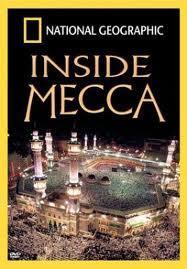 Each year, Muslims from all over the world travel to Mecca, the site of the Ka'bah that was built by Abraham and Ishmael, to praise and give thanks to God, to ask pardon for their sins, and to renew their spiritual commitment through an elaborate series of rites and rituals. One of the five pillars of Islam, the pilgrimage to Mecca, called the "hajj", is required of all Muslims who can manage it at least once in a lifetime.
Each year, Muslims from all over the world travel to Mecca, the site of the Ka'bah that was built by Abraham and Ishmael, to praise and give thanks to God, to ask pardon for their sins, and to renew their spiritual commitment through an elaborate series of rites and rituals. One of the five pillars of Islam, the pilgrimage to Mecca, called the "hajj", is required of all Muslims who can manage it at least once in a lifetime.
The events of the hajj have long remained veiled from non-Muslims, who are forbidden even to enter the holy city of Mecca. But in 2003 a team of Muslim filmmakers gained access to Islam's holiest place at the peak of the pilgrimage to document the holy event for National Geographic Television.
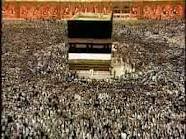
National Geographic's documentary, "Inside Mecca", follows three Muslims, all with different geographic backgrounds, as they head out on an epic five-day reaffirmation of their individual and collective faith in Islam. Their final destination is Mecca, but this is more than a physical journal. The film, through unique tales of the hajj, follows the three men on not only a physical quest but an emotional and spiritual quest. "There is something ultimately universal about hajj. … Something different types of people can relate to," notes Anisa Mehdi, the film's producer and director. "It is a search for the divine and a search for self. It is a quest for absolution and for meaning in life. It is a chance to get a lot off your chest and to replenish the reservoir."
The viewer is exposed to the smells, touches, extreme crowding, grandeur, and ultimate spiritual uplift of the largest yearly gathering of Muslims from around the world. Through the eyes of three men, we see the full scope and healing power of a pilgrimage and ultimate reunification.
Click here to watch "Inside Mecca" and join in the journey. After watching, you can browse documentary-log.com to watch various documentaries online.
***YOUR COMMENTS ARE ALWAYS WELCOME!***
And Please Note: If you enjoyed this Blog Post, you will certainly enjoy my book about the stories of Judaism, Christianity and Islam.

 Each year, Muslims from all over the world travel to Mecca, the site of the Ka'bah that was built by Abraham and Ishmael, to praise and give thanks to God, to ask pardon for their sins, and to renew their spiritual commitment through an elaborate series of rites and rituals. One of the five pillars of Islam, the pilgrimage to Mecca, called the "hajj", is required of all Muslims who can manage it at least once in a lifetime.
Each year, Muslims from all over the world travel to Mecca, the site of the Ka'bah that was built by Abraham and Ishmael, to praise and give thanks to God, to ask pardon for their sins, and to renew their spiritual commitment through an elaborate series of rites and rituals. One of the five pillars of Islam, the pilgrimage to Mecca, called the "hajj", is required of all Muslims who can manage it at least once in a lifetime.The events of the hajj have long remained veiled from non-Muslims, who are forbidden even to enter the holy city of Mecca. But in 2003 a team of Muslim filmmakers gained access to Islam's holiest place at the peak of the pilgrimage to document the holy event for National Geographic Television.

National Geographic's documentary, "Inside Mecca", follows three Muslims, all with different geographic backgrounds, as they head out on an epic five-day reaffirmation of their individual and collective faith in Islam. Their final destination is Mecca, but this is more than a physical journal. The film, through unique tales of the hajj, follows the three men on not only a physical quest but an emotional and spiritual quest. "There is something ultimately universal about hajj. … Something different types of people can relate to," notes Anisa Mehdi, the film's producer and director. "It is a search for the divine and a search for self. It is a quest for absolution and for meaning in life. It is a chance to get a lot off your chest and to replenish the reservoir."
The viewer is exposed to the smells, touches, extreme crowding, grandeur, and ultimate spiritual uplift of the largest yearly gathering of Muslims from around the world. Through the eyes of three men, we see the full scope and healing power of a pilgrimage and ultimate reunification.
Click here to watch "Inside Mecca" and join in the journey. After watching, you can browse documentary-log.com to watch various documentaries online.
***YOUR COMMENTS ARE ALWAYS WELCOME!***
And Please Note: If you enjoyed this Blog Post, you will certainly enjoy my book about the stories of Judaism, Christianity and Islam.
Published on January 25, 2012 21:01
January 24, 2012
BURIED TREASURE
Tweet
 The dream of buried treasure has always fascinated the human mind: the lost treasure of the Pharaohs, buried in Egyptian tombs; the jewel-filled treasure chests of pirates, buried on Caribbean Islands; the incalculable treasure of Solomon's Temple, discovered by the Knights Templar and hidden once again by the Freemasons. In an age of science, commerce, and common sense, these stories have stirred our imaginations, inspired us with hope and yearning, and encouraged not a few individuals to embark on great adventures. Most of these adventures, of course, have come to naught. Some of these seekers have returned with a few items for the museum, some have returned with empty hands and a good story, and some have not returned at all.
The dream of buried treasure has always fascinated the human mind: the lost treasure of the Pharaohs, buried in Egyptian tombs; the jewel-filled treasure chests of pirates, buried on Caribbean Islands; the incalculable treasure of Solomon's Temple, discovered by the Knights Templar and hidden once again by the Freemasons. In an age of science, commerce, and common sense, these stories have stirred our imaginations, inspired us with hope and yearning, and encouraged not a few individuals to embark on great adventures. Most of these adventures, of course, have come to naught. Some of these seekers have returned with a few items for the museum, some have returned with empty hands and a good story, and some have not returned at all.
The reason why these treasure hunts have by and large been unsuccessful is that most of these stories are symbolic and mythological. But this does not mean that a treasure does not exist! The stories themselves may not be literally true, but the meaning revealed by the stories is true. Among contemporary people, myths tend to be dismissed as childish fantasies or the unscientific gropings of primitive minds. But the mythological vision of the world has always been, and still remains, an important way of experiencing and understanding reality. Myths reflect our deepest psychological and spiritual truths.
A 'hidden treasure' does exist, just as all these stories claim. The fabulous jewels, the silver coins, the golden statues, all of this is real – far more real than anything found in a museum. It is true that this treasure is buried and hidden, just as the legends tell us. It is also true that a map exists, and it is a secretive map that requires special knowledge and preparation before it can be read and understood. There is even a guide who knows the way. However, the treasure is not buried under desert sand or a building in Manhattan. The map is not written on a scrap of faded parchment or the back of a national document. And the guide is not some enigmatic vagabond in a faraway land. The treasure, the map, and the guide, are all at hand.
The search for buried treasure is the sacred quest of the soul.
***YOUR COMMENTS ARE ALWAYS WELCOME!***
And Please Note: If you enjoy my Blog Posts, you will certainly enjoy my book.

 The dream of buried treasure has always fascinated the human mind: the lost treasure of the Pharaohs, buried in Egyptian tombs; the jewel-filled treasure chests of pirates, buried on Caribbean Islands; the incalculable treasure of Solomon's Temple, discovered by the Knights Templar and hidden once again by the Freemasons. In an age of science, commerce, and common sense, these stories have stirred our imaginations, inspired us with hope and yearning, and encouraged not a few individuals to embark on great adventures. Most of these adventures, of course, have come to naught. Some of these seekers have returned with a few items for the museum, some have returned with empty hands and a good story, and some have not returned at all.
The dream of buried treasure has always fascinated the human mind: the lost treasure of the Pharaohs, buried in Egyptian tombs; the jewel-filled treasure chests of pirates, buried on Caribbean Islands; the incalculable treasure of Solomon's Temple, discovered by the Knights Templar and hidden once again by the Freemasons. In an age of science, commerce, and common sense, these stories have stirred our imaginations, inspired us with hope and yearning, and encouraged not a few individuals to embark on great adventures. Most of these adventures, of course, have come to naught. Some of these seekers have returned with a few items for the museum, some have returned with empty hands and a good story, and some have not returned at all.The reason why these treasure hunts have by and large been unsuccessful is that most of these stories are symbolic and mythological. But this does not mean that a treasure does not exist! The stories themselves may not be literally true, but the meaning revealed by the stories is true. Among contemporary people, myths tend to be dismissed as childish fantasies or the unscientific gropings of primitive minds. But the mythological vision of the world has always been, and still remains, an important way of experiencing and understanding reality. Myths reflect our deepest psychological and spiritual truths.
A 'hidden treasure' does exist, just as all these stories claim. The fabulous jewels, the silver coins, the golden statues, all of this is real – far more real than anything found in a museum. It is true that this treasure is buried and hidden, just as the legends tell us. It is also true that a map exists, and it is a secretive map that requires special knowledge and preparation before it can be read and understood. There is even a guide who knows the way. However, the treasure is not buried under desert sand or a building in Manhattan. The map is not written on a scrap of faded parchment or the back of a national document. And the guide is not some enigmatic vagabond in a faraway land. The treasure, the map, and the guide, are all at hand.
The search for buried treasure is the sacred quest of the soul.
***YOUR COMMENTS ARE ALWAYS WELCOME!***
And Please Note: If you enjoy my Blog Posts, you will certainly enjoy my book.
Published on January 24, 2012 21:01
January 23, 2012
WHAT EXACTLY IS "SAUL ALINSKY RADICALISM"?
Tweet
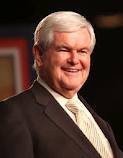 Who was this evil, anti-God, anti-American, radical that Newt Gingrich dismisses with so much arrogance and distaste?
Who was this evil, anti-God, anti-American, radical that Newt Gingrich dismisses with so much arrogance and distaste?
Alinsky was a community organizer in Chicago who, among other efforts, challenged the political machine of Mayor Richard J. Daley (a Democrat by the way) and helped register tens of thousands of previously disenfranchised black voters. He was an intelligent, compassionate social reformer who brought together community groups to work with socially aware churches.
What kind of "radicalism" did he practice? In his own words:
"Believing in people, the radical has the job of organizing them so that they will have the power and opportunity to best meet each unforeseeable future crisis as they move ahead in their eternal search for those values of equality, justice, freedom, peace, a deep concern for the preciousness of human life, and all those rights and values propounded by Judaeo-Christianity and the democratic political tradition. Democracy is not an end but the best means toward achieving these values. This is my credo for which I live and, if need be, die." [Page 12, Rules for Radicals, by Saul Alinsky]
***YOUR COMMENTS ARE ALWAYS WELCOME!***
And Please Note: If you enjoy my Blog Posts, you will certainly enjoy my book.

 Who was this evil, anti-God, anti-American, radical that Newt Gingrich dismisses with so much arrogance and distaste?
Who was this evil, anti-God, anti-American, radical that Newt Gingrich dismisses with so much arrogance and distaste?Alinsky was a community organizer in Chicago who, among other efforts, challenged the political machine of Mayor Richard J. Daley (a Democrat by the way) and helped register tens of thousands of previously disenfranchised black voters. He was an intelligent, compassionate social reformer who brought together community groups to work with socially aware churches.
What kind of "radicalism" did he practice? In his own words:
"Believing in people, the radical has the job of organizing them so that they will have the power and opportunity to best meet each unforeseeable future crisis as they move ahead in their eternal search for those values of equality, justice, freedom, peace, a deep concern for the preciousness of human life, and all those rights and values propounded by Judaeo-Christianity and the democratic political tradition. Democracy is not an end but the best means toward achieving these values. This is my credo for which I live and, if need be, die." [Page 12, Rules for Radicals, by Saul Alinsky]
***YOUR COMMENTS ARE ALWAYS WELCOME!***
And Please Note: If you enjoy my Blog Posts, you will certainly enjoy my book.
Published on January 23, 2012 21:01



